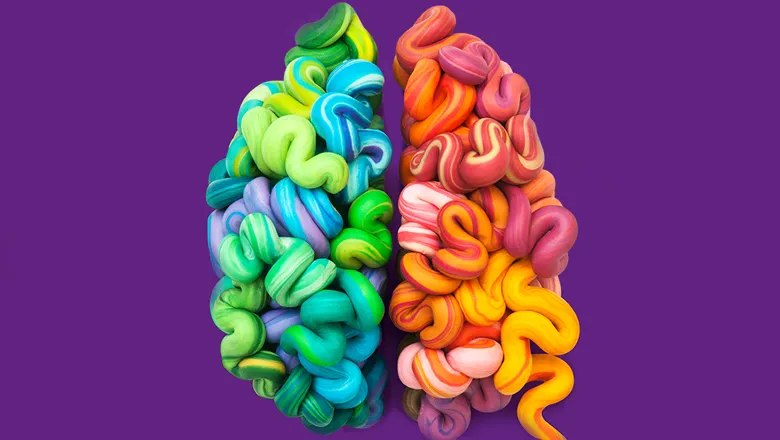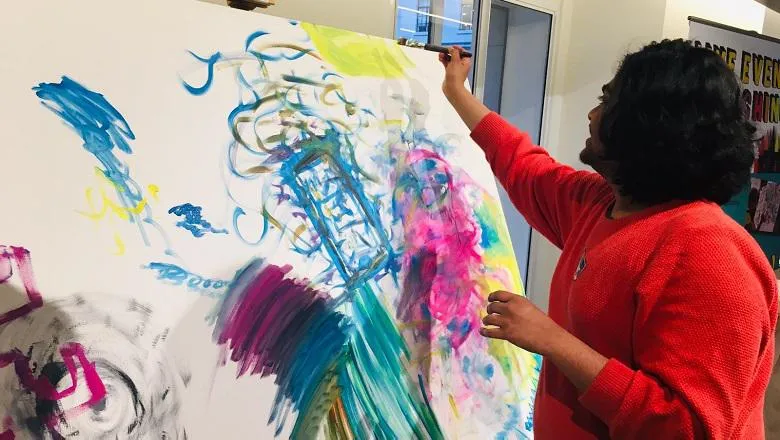The arts and social activities are life-enhancing and have been proven to have a demonstrable impact on health and wellbeing, including reducing reliance on medication. Our long-term plan for the NHS aims to harness this incredible power through a rollout of social prescribing so 900,000 people will be referred to schemes by 2024. We are also building a National Academy for Social Prescribing which will champion social prescribing and grow the research base so even more communities can benefit.
The Rt Hon. Matt Hancock MP, Secretary of State for Health and Social Care
14 June 2019
New Creative Health Conference explores important link between creativity and health
How creativity can enhance health and change people’s lives for the better

A new conference exploring how creativity can enhance health and change people’s lives for the better was recently launched.
On Monday 10 June, Southbank Centre hosted the first Creative Health Conference to coincide with Creativity and Wellbeing Week.
Bringing together artists, practitioners, funders and policy-makers in the arts and health sectors, a key focus of the conference was progress made since the All-Party Parliamentary Group on Arts, Health and Wellbeing 2017 report Creative Health: The Arts for Health and Wellbeing. King’s College London was the research partner for this inquiry which is now helping to shape future work in the arts, health and wellbeing field across the UK.
Through keynote speeches from leading figures in policy-making and delivery, panels and breakout sessions with experts in the field, the conference explored how different parts of the system can work together in the future to expand on the invaluable cross-sector work already underway.
Panel discussions focused on some of the most pressing issues in health and social care such as social isolation and loneliness, the role of social prescribing in the future and how initiatives will be funded. Arts organisations of all scales and working in a range of health contexts were involved in the conversations from City of London Sinfonia to Entelechy Arts, Clod Ensemble and The Royal Philharmonic Orchestra.
The arts enrich our lives and our shared humanity. They also can promote social connection and positive health and wellbeing. That’s why the NHS is supporting approaches such as social prescribing which help people get involved in something they enjoy while improving their health at the same time.
Simon Stevens, Chief Executive, NHS England
Keynote speakers included Matt Hancock MP, Secretary of State for Health and Social Care (via video link); Rebecca Pow MP, Minister for Arts, Heritage and Tourism; The Rt Hon Lord Howarth of Newport CBE – Co-Chair of the All-Party Parliamentary Group on Arts, Health and Wellbeing; Simon Stevens – Chief Executive, NHS England, and Gillian Moore CBE – Director of Music, Southbank Center.
No creative conference would be complete without experiencing first-hand the benefits of participating in the arts, expertly led by Choirmaster Mark De Lisser who recently appeared in BBC’s two-part documentary Our Dementia Choir. Another interactive opportunity came with the afternoon session with Strokestra in the Queen Elizabeth Hall auditorium, sharing a creative music-making intervention for those living with stroke and their carers in Hull.
Panel discussions focused on some of the most pressing issues in health and social care such as social isolation and loneliness, the role of social prescribing in the future and how initiatives will be funded. Arts organisations of all scales and working in a range of health contexts were involved in the conversations from City of London Sinfonia to Entelechy Arts , Clod Ensemble and The Royal Philharmonic Orchestra.
Darren Henley OBE, Chief Executive, Arts Council England, said: “There’s a growing body of evidence showing the value that creativity and the arts can bring to improving people’s health. We’re working with healthcare practitioners and researchers to increase the insight that will help us to better understand the ways in which artists, arts organisations, museums and libraries can play their part in helping everyone to lead happier, healthier lives.”

